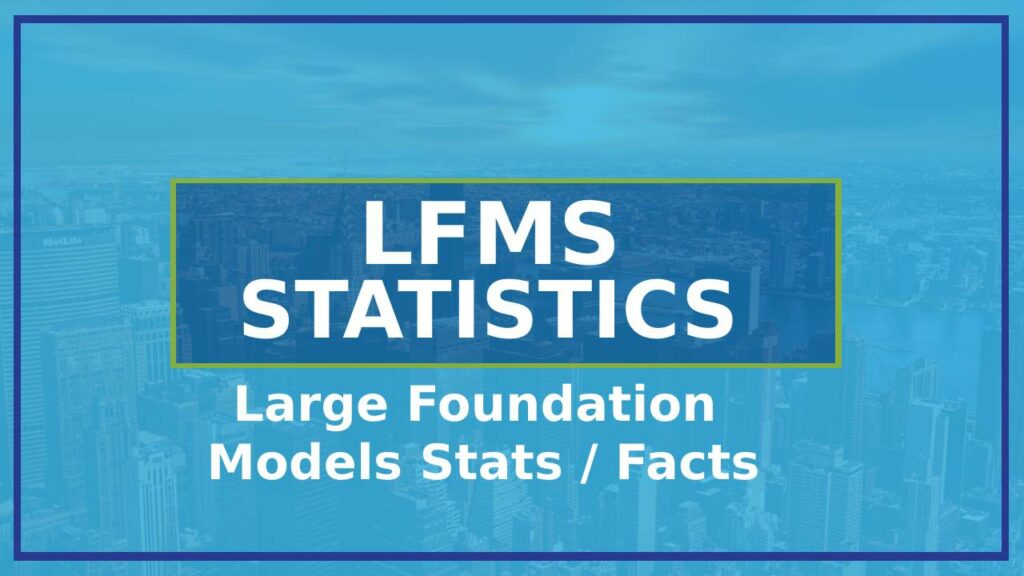LFMS Statistics 2023
- Large foundation models, such as GPT-3, can consist of hundreds of billions of parameters.
- GPT-3, developed by OpenAI, is one of AI’s most well-known large foundation models.
- GPT-3 has been trained on diverse internet text data, including books, articles, and websites.
- The training process for large foundation models can require vast computational resources and energy.
- GPT-3 has the capability to generate human-like text, including coherent paragraphs and responses to prompts.
- Large foundation models have the potential to assist in various tasks, such as language translation, summarization, and content generation.
- GPT-3 has been used to create conversational agents, virtual assistants, and chatbots.
- Deploying large foundation models has raised concerns about ethical considerations, including biases and potential misuse.
- GPT-3 has limitations in understanding context and can sometimes generate inaccurate or nonsensical responses.
- Training a large foundation model can require significant amounts of labeled data for optimal performance.
- Fine-tuning techniques are often employed to adapt large foundation models to specific tasks or domains.
- Large foundation models have been used in healthcare, finance, and customer service industries.
- GPT-3 has been utilized to generate code, write poetry, and create realistic-sounding news articles.
- The size and complexity of large foundation models make them computationally expensive to run.
- Developers can leverage pre-trained large foundation models to reduce training time and costs for specific applications.

Key Large Foundation Model Stats 2023-2024
- GPT-3 can generate realistic-sounding fictional characters and narratives.
- Large foundation models are continuously evolving, with researchers working on improving their performance and efficiency.
- GPT-3 and similar models have been criticized for being “black boxes,” as the internal workings can be challenging to interpret.
- The use of large foundation models has sparked debates about intellectual property and ownership of generated content.
- GPT-3 has been used for creative applications, such as generating art, music, and virtual personalities.
- Large foundation models require substantial computational infrastructure to train and deploy effectively.
- GPT-3 can be used to generate human-like dialogue and engage in conversation with users.
- Research is ongoing to explore ways to make large foundation models more efficient and environmentally friendly.
- The size of large foundation models poses challenges for deployment in resource-constrained environments.
- GPT-3 can exhibit biases present in the training data, raising concerns about fairness and inclusivity.
- Large foundation models have the potential to revolutionize the sphere of natural language processing and understanding.
- GPT-3 has been used to create virtual tutors and personalized learning experiences.
- The scalability of large foundation models enables them to handle an extensive range of tasks and domains.
- GPT-3 can generate plausible-sounding fake news articles, highlighting concerns about misinformation.
- The use of large foundation models has implications for data privacy and security.
- GPT-3 can be leveraged to improve search engine capabilities and recommendation systems.
- Large foundation models are driving research and innovation in the field of AI and machine learning.
- The development of large foundation models has democratized access to advanced AI technologies, enabling broader experimentation and exploration.

A.I. is our Artificial Intelligence Bot that offers the best of all search marketing and paid advertising strategies here are AI Stratagems.
